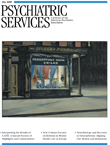This work is one that aims to link the fields of philosophy and psychiatry through conceptualization of the impact of the ultimate determinants of human action on general and emotional well-being. The author has developed a "philosophical action theory," and the basic tenets of this theory are reviewed in the initial chapters of the book. The discussion of these concepts is quite detailed with numerous suppositions and hypotheses. A presentation of the author's conceptions of health and illness follows. In this holistic approach, illness is defined as "the inability to realize vital goals." The importance of mental events and states as fundamental to both the predisposition for action and action initiation is highlighted.
The topics of irrationality and compulsion—the latter term is identified as the inability to avoid a specific course of thought or action—are then discussed at length, as the author prepares the reader for a consideration of these concepts in relation to specific mental disorders. The ubiquitous nature of irrational thought in nonpathological states is acknowledged; "We are all—even the most insightful among us—holding a great many false beliefs at any moment." Irrationality is defined as pathological only when it obstructs an individual's ability to realize important life goals. In essence, compulsion is defined in terms of intentions, beliefs, and external circumstances limiting the choice of alternative actions.
An informative review of delusional thinking from a broad variety of perspectives comes next. Delusional paranoia is presented as a condition that illustrates compelled thinking leading to an illness state. Other mental illnesses—such as impulse-control disorders, addictions, obsessive and phobic states, and personality variants with the "rigid" personality as well as psychopathy—are subsequently reviewed with their respective compulsive elements identified.
I would recommend this book for clinicians of any discipline who have an interest in examining mechanisms and determinants of behavior in an in-depth manner. I found the myriad considerations on the nature of action initiation and continuation thought provoking in the sense of highlighting the complexities involved in such basic human processes. I was heartened that, despite the mechanistic nature of many of the discussions, the importance of the self and of one's sense of self-efficacy as overarching agents of determination was maintained. The functional approach to health status appears to be quite compatible with a strengths-based, problem-solving approach to the treatment of mental illness. The author's conceptualizations of irrational thought and compulsion suggest approaches of tolerance and understanding toward evaluating the nature of a patient's thinking and behavior. His conceptualizations also support consideration of cognitive-behavioral, motivational, psychoeducational, and psychopharmacological interventions to ameliorate specifically identified mechanisms compelling dysfunctional patterns.
A significant strength of the work is the presence of numerous, clearly worded summaries. These summaries are employed throughout the book, most chapters conclude with a specified summary section. The epilogue provides an additional, concise restatement of the major concepts covered.
A word of caution to potential readers of this book. The arguments presented are very detailed in nature and do not lend themselves to being read in an environment where a reader's attention will be distracted. I found it necessary to reread a number of sections to enhance my understanding of the material. I believe that the committed reader of this work will benefit from exposure to ideas not typically encountered in the usual psychiatric text. The major concepts presented here strike me as potentially applicable to pursuits as diverse as planning therapeutic or rehabilitation activities or posing research questions.

